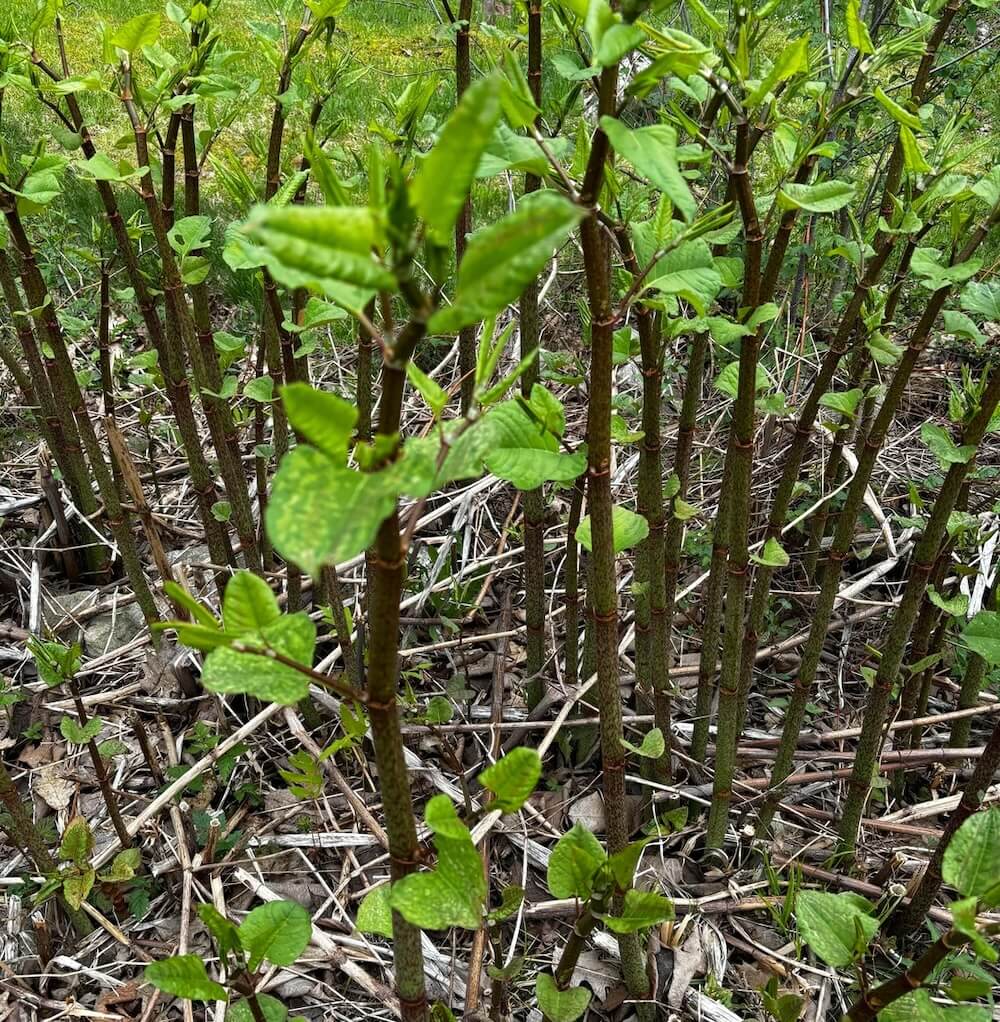A homeowner in Maine turned to the r/Maine community for help identifying a stubborn plant in their yard. They received hundreds of messages about not only what the plant was but also the fight they were in for with it.
"What plant is this, and any experiences removing it??" they wrote above two pictures of stalky plants with bright green leaves.


"This stuff grows extremely quick. Knocked it down, but … it got back up again! Any help with identifying and management would be awesome."
"Japanese knotweed, [known] locally as 'bamboo' (it's not related to bamboo)," another user was quick to comment. "In some areas there is a whole industry related to removing this stuff. One of the most invasive, destructive, and hard to kill weeds on the planet."
"Hard to kill is a gross understatement," added another. "Unless you're ready for multi year battle, it may be easier to sell the property."
Japanese knotweed is native to Asia and was introduced to the United States in the late 1800s as an ornamental plant. It is highly invasive. Many homeowners have found themselves battling the plant, and one even backed out of buying a home after discovering that it was growing on the neighboring property.
Invasive species crowd out other plants and animals and deprive them of resources. If the original poster's knotweed is left unchecked, anything else growing in their yard — and possibly in surrounding yards — will surely suffer.
Removing the plant and replacing it with native species would save the homeowner time and money in the long run, and benefit the environment. Native plants, as opposed to invasive ones, are adapted to the local environment. Because of this, they require very little maintenance.
Native plants are also uniquely beneficial to local wildlife. They are especially beneficial as habitats for crucial pollinators that protect the global food supply.
🗣️ Should we be actively working to kill invasive species?
🔘 Absolutely 💯
🔘 It depends on the species 🤔
🔘 I don't know 🤷
🔘 No — leave nature alone 🙅
🗳️ Click your choice to see results and speak your mind
Aside from warnings about the plant, plenty of users also had helpful advice for the OP.
"Its roots are incredibly medicinal, pollinators love it as a late season meal and you can eat the spring ramps," wrote one. "Some of the best honey i've ever had was knotweed. With careful planning, it can be contained and beneficial."
While this isn't a terrible suggestion, letting the plant live was the suggestion of the minority.
"I got rid of mine by knocking it down, covering the area with old rugs and a tarp on top of it and then mowing around the edge — sometimes twice a week," explained another user. "Then after three or so years of keeping it covered up, let the space see light and still had to mow constantly and yank up sprouts as soon as I saw them. Good luck — and this is not a sprint but a marathon taking it on."
Join our free newsletter for easy tips to save more and waste less, and don't miss this cool list of easy ways to help yourself while helping the planet.









